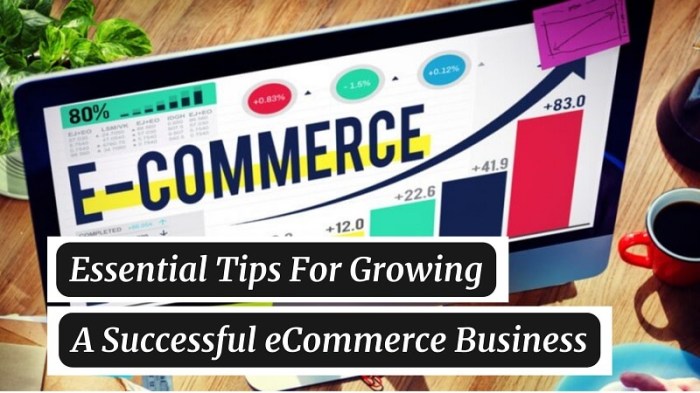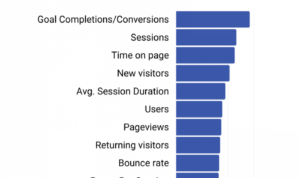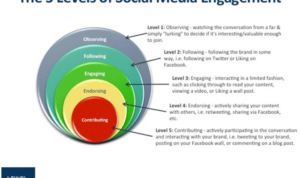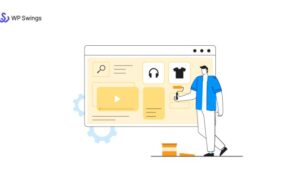E-commerce Growth Tips: Strategies for Success sets the stage for a deep dive into the world of online business expansion. Get ready to uncover key insights and expert advice in this gripping narrative.
From the importance of e-commerce growth to leveraging social media and implementing strategies, this guide has everything you need to thrive in the digital marketplace.
Importance of E-commerce Growth

E-commerce growth is crucial for businesses in today’s digital age as it allows companies to reach a wider audience, increase sales, and improve customer satisfaction. With the convenience of online shopping, businesses can expand their market reach beyond geographical boundaries and operate 24/7. This shift to e-commerce has become even more essential with the changing consumer behavior and preferences.
Examples of Successful E-commerce Growth Strategies
- Utilizing data analytics to personalize the customer experience and tailor marketing efforts.
- Implementing mobile optimization to accommodate the increasing number of mobile shoppers.
- Offering multiple payment options to cater to diverse customer preferences.
- Utilizing social media platforms to engage with customers and drive traffic to the e-commerce site.
Impact of E-commerce Growth on the Global Economy
E-commerce growth has significantly impacted the global economy by creating new opportunities for businesses, generating employment, and fostering innovation. It has facilitated international trade by breaking down barriers and allowing small businesses to compete on a global scale. The rise of e-commerce giants has reshaped traditional retail landscapes and transformed the way consumers shop. As e-commerce continues to evolve, its influence on the global economy is expected to grow exponentially.
Optimizing Website for E-commerce Growth

To ensure the success of an e-commerce business, it is crucial to optimize the website for maximum growth. By focusing on key elements and enhancing user experience, conversions can be increased significantly. Additionally, with the rise of mobile usage, having a mobile-responsive website is essential for e-commerce growth.
Key Elements to Optimize on an E-commerce Website
- Design: Ensure a clean and attractive design that is easy to navigate.
- Speed: Optimize website speed for quick loading times, reducing bounce rates.
- : Implement effective strategies to improve visibility and ranking on search engines.
- Product Pages: Enhance product pages with high-quality images, detailed descriptions, and customer reviews.
- Checkout Process: Simplify the checkout process to reduce cart abandonment rates.
Tips for Improving User Experience for Increased Conversions
- Clear Call-to-Actions: Use prominent and compelling CTAs to guide users towards making a purchase.
- Personalization: Tailor the shopping experience based on user preferences and behavior.
- Responsive Customer Support: Provide quick and helpful customer support through various channels.
- Easy Navigation: Ensure intuitive navigation to help users find products quickly and easily.
- Optimized Search Function: Implement a robust search feature to help users locate specific products.
Importance of Mobile Responsiveness for E-commerce Growth
- Mobile Usage: With the increasing number of users accessing websites through mobile devices, having a mobile-responsive site is crucial.
- Benefits: Google prioritizes mobile-friendly websites in search results, improving visibility and traffic.
- User Experience: A mobile-responsive site provides a seamless browsing experience, leading to higher conversions and customer satisfaction.
- Competitive Advantage: Stand out from competitors by offering a mobile-friendly shopping experience that caters to a wide range of users.
Utilizing Social Media for E-commerce Growth: E-commerce Growth Tips
Social media platforms play a crucial role in driving e-commerce growth by providing a direct channel to reach and engage with potential customers. Utilizing these platforms effectively can lead to increased brand awareness, customer engagement, and ultimately, higher sales.
Leveraging Social Media Platforms
- Creating engaging content: Regularly posting high-quality images, videos, and interactive content can attract and retain followers, increasing the likelihood of converting them into customers.
- Utilizing targeted advertising: Social media platforms offer advanced targeting options to reach specific demographics, interests, and behaviors, maximizing the effectiveness of advertising campaigns.
- Engaging with the audience: Responding to comments, messages, and reviews in a timely manner can build trust and loyalty among customers, leading to repeat purchases and referrals.
Successful Social Media Campaigns, E-commerce Growth Tips
-
Starbucks Holiday Cups Campaign:
Starbucks successfully leveraged social media to promote its limited edition holiday cups, creating buzz and excitement among customers, resulting in increased foot traffic and sales during the holiday season.
-
ASOS Influencer Partnerships:
ASOS collaborated with influencers to showcase their products to a wider audience, driving traffic to their website and boosting sales through influencer marketing.
Influencer Marketing in E-commerce Growth
- Collaborating with influencers: Partnering with influencers who align with your brand values and target audience can help increase brand visibility, credibility, and ultimately drive sales.
- Authenticity and trust: Consumers often trust recommendations from influencers they follow, making influencer marketing an effective strategy to tap into new markets and increase e-commerce sales.
Implementing Strategies for E-commerce Growth
Search Engine Optimization () plays a crucial role in the growth of e-commerce businesses. By implementing effective strategies, online stores can improve their visibility on search engines, attract more organic traffic, and ultimately increase sales.
Optimizing Product Pages for Search Engines
Optimizing product pages for search engines is essential to ensure that potential customers can easily find the products they are looking for. Here are some tips to optimize product pages:
- Include relevant s in product titles, descriptions, and meta tags to improve search engine rankings.
- Optimize product images by using descriptive filenames and alt tags to make them more discoverable in image search results.
- Create unique and compelling product descriptions that provide valuable information to customers and search engines.
- Ensure that product URLs are clean, concise, and contain relevant s for better indexing.
Role of Content Marketing in Driving Organic Traffic
Content marketing plays a vital role in driving organic traffic to e-commerce websites by providing valuable and engaging content that attracts and retains customers. Here are some ways content marketing can boost :
- Create high-quality blog posts, product guides, and articles that target relevant s and answer common customer questions.
- Develop a content calendar to consistently publish fresh and informative content that resonates with your target audience.
- Utilize social media platforms to promote your content and drive traffic back to your e-commerce site.
- Implement internal linking strategies to connect related content and improve the overall health of your website.





